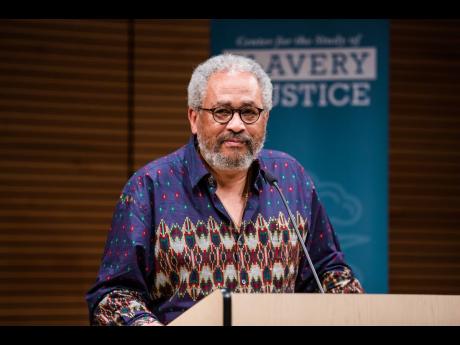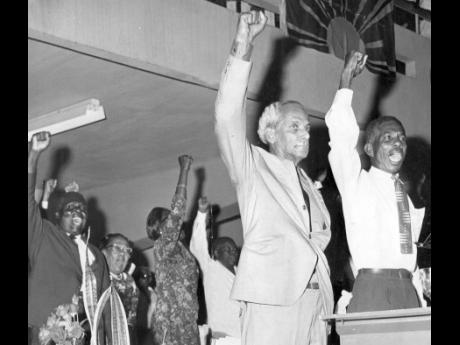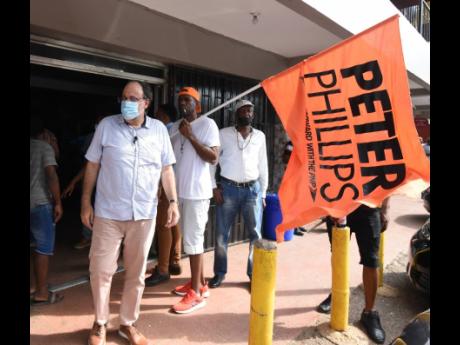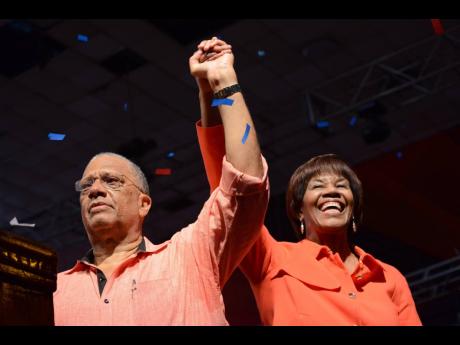Anthony Bogues | Politics, political parties and transformation
On September 18 the People’s National Party (PNP) celebrated its 83rd anniversary. Given COVID-19 and responsible political behaviour, celebratory events were muted. Anniversaries are always good moments to pause and reflect. Political parties have a long history in the modern world. In Jamaica, one of the most important 20th-century political parties was that of Marcus Garvey – The People’s Political Party (PPP). Formed in 1929, the party proposed a political programme of reform which included among other demands a minimum wage and an eight-hour workday. Although the PPP won some seats in the KSAC, British colonialism in the late 1920s and ‘30s still held Jamaica in colonial bondage.
Michael Manley once remarked that Jamaica and the Caribbean were “born in the midst of the dominance of European colonialism”. This dominance was nurtured in the racial slavery of the plantation systems, one in which there was anti-black racism and exploitation of the ordinary Jamaican. In such a system no political representation was possible for the ordinary Jamaican. While Garvey’s PPP was the precursor of efforts to politically represent the interests of the Jamaican people, there were other organisations and groups that strove to challenge British colonial rule over Jamaica. In 1919, there were attempts to form trade unions; there were also efforts within an emergent middle class, like Ken Hill’s National Reform Association. In upper Clarendon, Robert Rumble formed the Poor Man’s Land Association advocating land for small framers. Then in 1930’s the Rastafari Movement emerged. Jamaica in the 1930s, before the 1938 general strike, was a political and social cauldron. Out of this cauldron the PNP was formed as a national movement and political party.
A MOVEMENT AND A POLITICAL PARTY
In politics, national movements have a single political objective. In the case of the PNP, it was political independence and the creation of a new nation. When N.W. Manley declared in 1969, “Mission accomplished”, he was referring to this political objective. At its birth, the PNP was both a movement and a political party. While a movement tends to focus on a single major political objective, on the other hand, political parties, particularly if they are progressive, have multiple political objectives. They seek state power to effect change while representing the interests of everyday people.
So there was an initial tension within the structures of the PNP between it being both a party and a movement. The second source of tension within the PNP was that it was a movement based on class alliance, one in which various classes were supportive of the political idea of independence. All of this made the party a complex organisation, but one which always rooted itself in political ideas and broad debate. In 1952, the tensions around class alliance exploded with the expulsion of the 4 Hs. Richard Hart, one of the leaders of the left at the time, argued that the left had joined the PNP to fight for political independence as others did, but expected that the party would split once this political objective was achieved. Driven by Cold War politics, McCarthyism in the USA as well as internal struggles, the party removed the radical left from its ranks. It won the next general election but later lost the referendum on whether or not Jamaica should become a part of the West Indian Federation, and then subsequently lost the next general election.
DISAPPOINTMENT OF INDEPENDENCE
In 1962,Jamaica formally received its political independence. Yet by the middle of the 1960s the hope of independence faded, replaced by a sense of deep disappointment and profound distrust in the legitimacy of Jamaican political system. In this context, the PNP was able to renew itself. History does not step in the same river twice, but the renewal of the PNP in the late 1960s and 1970s under the leadership of Michael Manley drew extensively from the various social movements in Jamaica at the time. Many of these movements were inspired by Black Power and black nationalism. They tapped into a disillusionment about the failures of independence. For many Jamaicans, it seems although the flag had been raised at the National Stadium, life was too hard and that there were two Jamaicas. In one Jamaica, there was an elite, many of whom had their roots in British colonialism, and then there was another Jamaica, the vast majority, many of whom lived on the margins, calling themselves “sufferers”.
The Black Power movement and other social movements, along with many singers and musicians, protested what they saw as the failures of political independence. If in the 1930s and ‘40s, figures like Ken Hill, Arthur Henry and Richard Hart joined the party, in the 1970s it was DK Duncan and a set of young people galvanised by the various social movements of the period who joined. The revitalisation of the PNP, beginning in the late 1960s and continuing throughout the 1970s, marked the closing period of its history as a national movement as it became a mass democratic socialist party.
PROGRESSIVE PARTY FOCUSED ON CHANGE
In this transition from movement to mass democratic party, DK Duncan was pivotal. Blessed with the political gift of translating political ideas into concrete political action and everyday political tasks, he worked tirelessly with others to consolidate the party structures into a progressive mass party. This was both an intellectual and political task. This transition from national movement to mass democratic party was made possible because of the political vision of Michael Manley. As a political thinker and activist, Manley had deep understanding of the meaning of politics for a society. Here one is not talking about tribal politics but rather an idea that the practice of progressive politics was about a common good. This commitment to a common good meant that one core of the PNP as a political party was democracy.
Today, the party is again in the process of renewal. It is something that progressive political parties do periodically not because of electoral defeat but because the necessities of progressive politics demand constant reflection. Progressive politics is not simply about the electoral game, it is also about change. To be about change is to have ideas. It is to carefully understand the society in which one lives; to be able from that understanding construct policies and a vision which excites and creates the desire for change.
As a party, we begin this process by confronting who we are. Yes, we are Jamaicans. But what does that mean? More important, what should it mean? Renewal always demands context. And today one of the biggest challenges of our context is the continuous growth of inequality. This is not just about the gap between rich and poor, rather it is about how economic inequality creates social inequality and how Jamaican social structures daily reproduce these inequalities, in education, within the criminal justice system and other places within the society, and how social relations are constructed.
As the party renews itself in this period, there is no social movement from which it can draw. Yet, it has to be bold. For this it has deep intellectual, historical and political resources. Those resources begin with the profound point of NW Manley that the party must place the interest of the masses above all else. Second, from Michael Manley that the mass democratic political party is one whose political objective should be the transformation of Jamaican society – a kind of transformation in which the ordinary Jamaican will be a citizen who has dignity, education and the resources so that she/he can make a life. A society in which class/colour codes and where one resides does not block life chances; one in which the dignity of human life is sacred and human rights are deeply recognised.
To achieve all of these things for the party to renew, it takes on the mantle that DK Duncan, Vernon Arnett and others who struggled for – a truly democratic Jamaica, not one where there is only formal electoral democracy but one in which the ordinary Jamaican has a say about his/her life and the things which govern their lives. It was a Garvey dream, it was the dream of the thousands of striking workers in 1938; it was the fervent wish of the reggae musicians who always sang about equal rights and justice. The PNP’s renewal today is about how to make these dreams and songs a reality.
Anthony Bogues is Asa Messer professor of humanities, Brown University ,and chair, PNP Policy/Vision Commission. Send feedback to rasmash@aol.com or columns@gleanerjm.com




